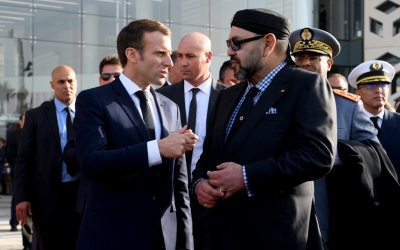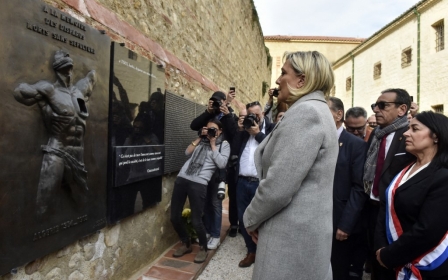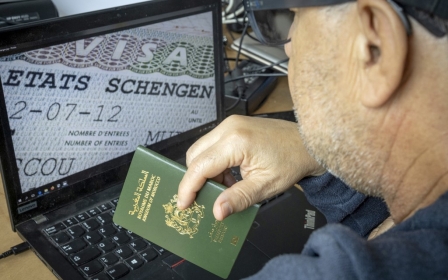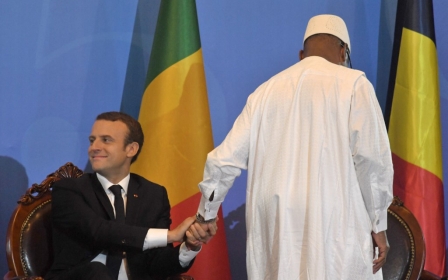Western Sahara: Algeria blocks deportations from France due to policy shift
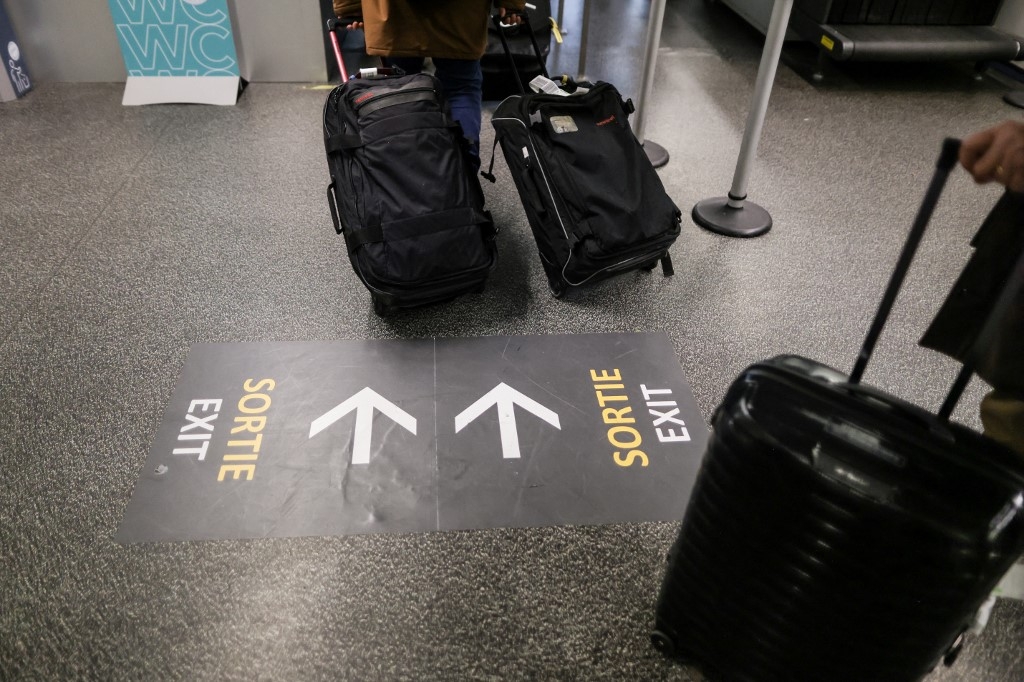
In response to Paris’ support for Morocco's claim of sovereignty over Western Sahara last week, Algeria is refusing to take back citizens who have been handed deportation orders by France, a newspaper revealed on Wednesday.
The satirical and investigative weekly Le Canard Enchaine reports that relations between France and Algeria have "deteriorated" since French President Emmanuel Macron sent Moroccan King Mohammed VI a letter backing Morocco's autonomy plan for the disputed region and asserting that it is part of the kingdom.
In response, Le Canard Enchaine said Algiers wants to put pressure on France by systematically returning Algerians who the French have deported.
According to a senior official quoted by the newspaper, "dozens" of Algerians handed deportation orders "make simple round trips by plane" between the two countries.
As soon as they return to French soil, they find themselves free, the paper said.
New MEE newsletter: Jerusalem Dispatch
Sign up to get the latest insights and analysis on Israel-Palestine, alongside Turkey Unpacked and other MEE newsletters
In his letter, Macron said Morocco's plan for Western Sahara, whereby the territory is recognised as Moroccan but given some degree of autonomy, "now constitutes the only basis for reaching a just, lasting and negotiated political solution in accordance with the resolutions of the United Nations Security Council".
Without expressly recognising the "Moroccanness" of the territory, as desired by Rabat, Macron wrote that "the present and future of Western Sahara are part of Moroccan sovereignty", marking a significant shift in French policy.
The announcement infuriated Algiers, which announced the "withdrawal with immediate effect" of its ambassador to France.
Depuis les prises de position de Macron en faveur du Maroc sur le Sahara occidental, l’Algérie renvoie systématiquement vers la France ses ressortissants expulsés de l’Hexagone. Des dizaines de clandestins algériens font de "simples allers-retours " constate un…
— Le Canard enchaîné (@canardenchaine) August 7, 2024
Translation: “Since Macron's stance in favour of Morocco on Western Sahara, Algeria has been systematically sending back to France its nationals deported from France. Dozens of Algerian illegal immigrants are making ‘simple round trips', notes a senior official. Darmanin's statistics are going to take a hit!”
Western Sahara, located to the south of Morocco and Algeria, is a source of conflict between the neighbours.
A former Spanish colony with rich fishing waters and phosphate reserves, the territory is controlled for the most part by Morocco but claimed by the Polisario Front, a Sahrawi independence movement that is supported and hosted by Algeria.
Polisario fought a war with Morocco from 1975 to 1991, which ended with 80 percent of the territory in Moroccan hands and a ceasefire that promised a self-determination referendum under the auspices of the United Nations that has never materialised.
The UN considers Western Sahara as a "non-autonomous territory".
The day after Macron’s letter, Stephane Dujarric, spokesperson for the UN secretary-general, declared that "the efforts of the United Nations concerning the resolution of the conflict in Western Sahara will continue in accordance with the resolutions of the Security Council".
'Drawing the necessary conclusions'
After Macron's letter became public, Algerian Foreign Minister Ahmed Attaf insisted that “the French decision will not change anything” regarding Western Sahara’s status as “a non-self-governing territory, according to the UN”.
Attaf also threatened Paris with a series of sanctions, warning that he was “drawing the necessary conclusions regarding the French approach”.
While some experts expect French trade interests to be threatened by retaliatory Algerian measures, other observers believe aggressive economic options are not on the table for Algeria, suggesting that Algeria does not intend to end the activities of French firms in the country, particularly those of the oil giant TotalEnergies.
Therefore, migration appears to be an important lever for Algiers. Le Canard Enchaine noted that "this is not the first time" that Algeria has retaliated against France by blocking the deportation of Algerians.
In France, foreigners in the country illegally may be subject to various deportation measures. Since the so-called "Besson" law of 2011, the obligation to leave French territory (OQTF) order has been one of the most widely used procedures.
However, before repatriating a foreign national from French territory, the authorities must determine their nationality. When they do not have a valid identity document, the authorities must obtain a consular pass from the country of origin to carry out the return.
In 2021, the interior ministry complained that France had only been able to expel 0.3 percent of Algerians handed OQTFs, implying that Algiers was refusing to grant consular passes.
In response, the French government drastically reduced the number of visas granted to Algeria, Morocco and Tunisia, implying they also refused to grant consular passes.
A few weeks later, as tensions rose again between Algiers and Paris over their views of France's colonial history, Algerian President Abdelmadjid Tebboune accused France of lying about the number of Algerians handed deportation orders.
The French government said it wanted to expel 7,730 Algerian irregular migrants, but Algeria said only 94 people had been issued orders.
'Very prosaic imperatives'
In another article on Wednesday, Le Canard Enchaine explored the possible reasons that prompted Macron to shift France's position on Western Sahara at the risk of further deteriorating relations with Algeria, a country he once courted.
According to the weekly, France's ambassador in Rabat, Christophe Lecourtier, played a leading role in the volte-face.
Lecourtier is known to be close to former President Nicolas Sarkozy and his justice minister, Rachida Dati, who has both French and Moroccan nationalities, the paper said.
Le Canard Enchaine described them as "two zealous advocates of the Moroccanness of the Sahara", adding that "the French shift also responds to very prosaic imperatives".
"It is about preserving the interests of the [French] giants of energy and construction in a kingdom assiduously courted by China and Russia," it wrote.
The weekly added that "an African factor also carried weight".
France’s military, economic and political role in the continent has been increasingly questioned, especially in the Sahel, where in recent years, the French army has been made to leave Mali, Burkina Faso and Niger, leaving space for new actors such as Russia, China or Turkey.
"In distress in the sub-Saharan region, particularly in the Sahel, France is counting on the Moroccan ally, whose continental activism is obvious, to save some positions in Africa," Le Canard Enchaine wrote.
Middle East Eye delivers independent and unrivalled coverage and analysis of the Middle East, North Africa and beyond. To learn more about republishing this content and the associated fees, please fill out this form. More about MEE can be found here.


